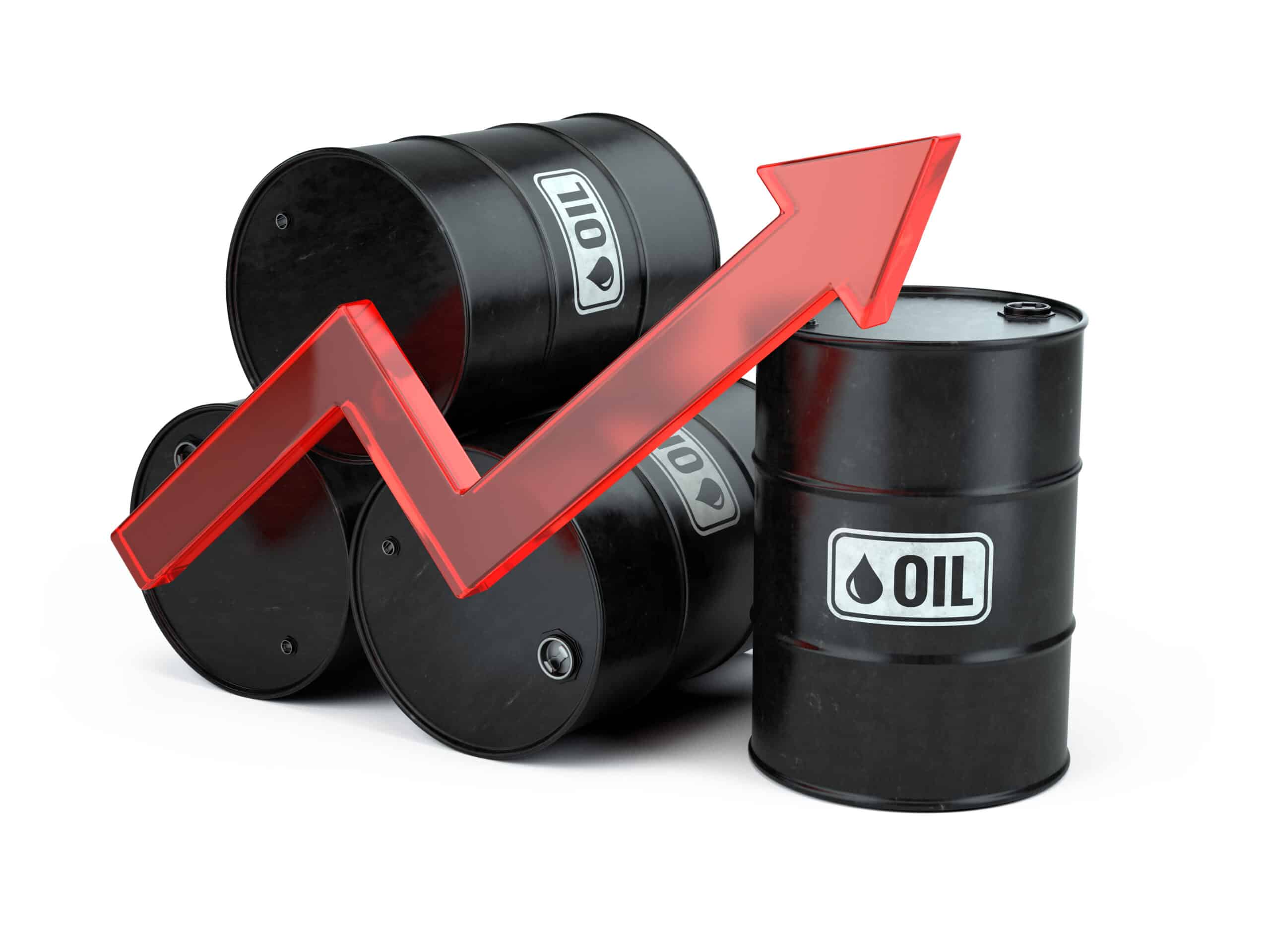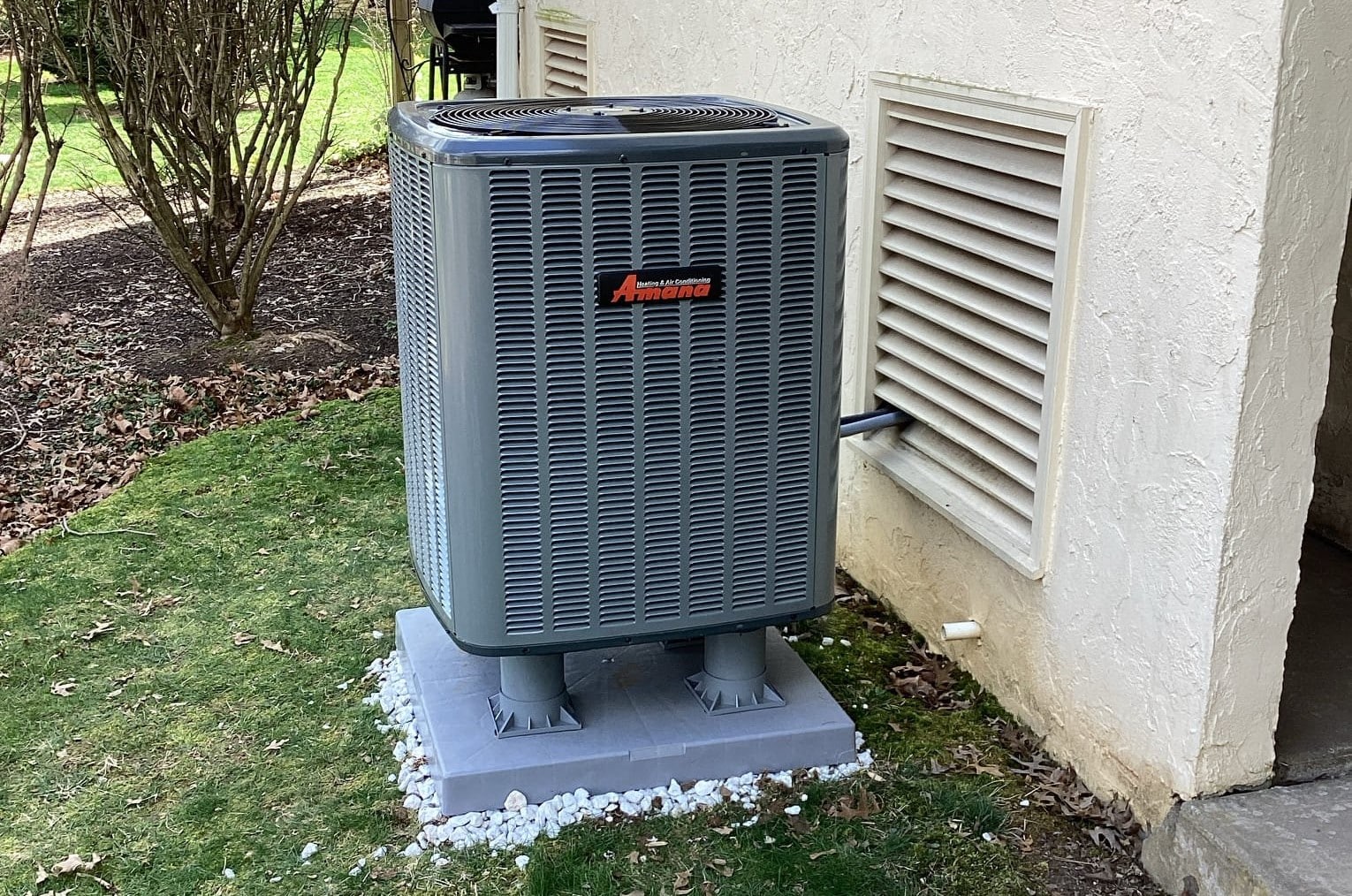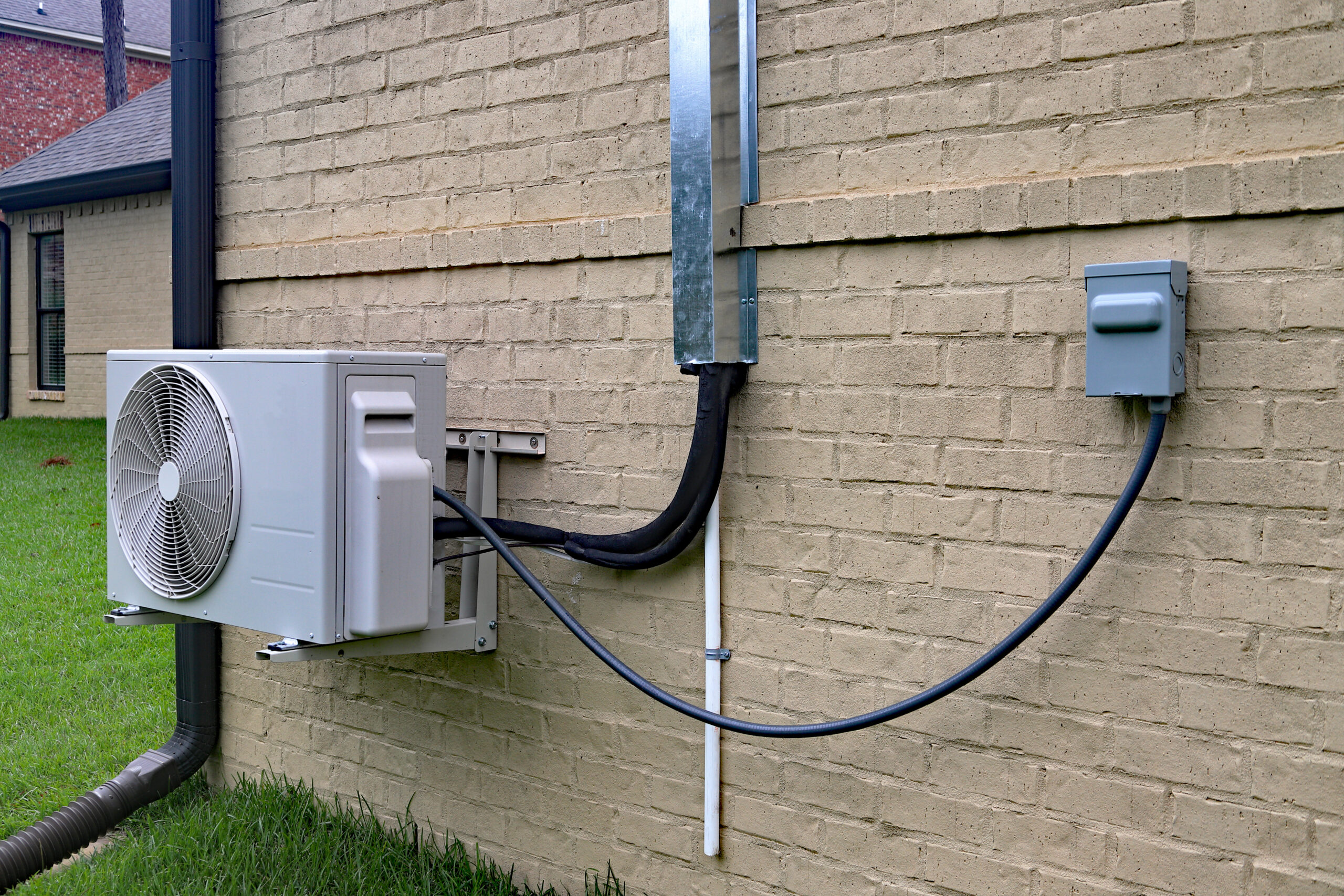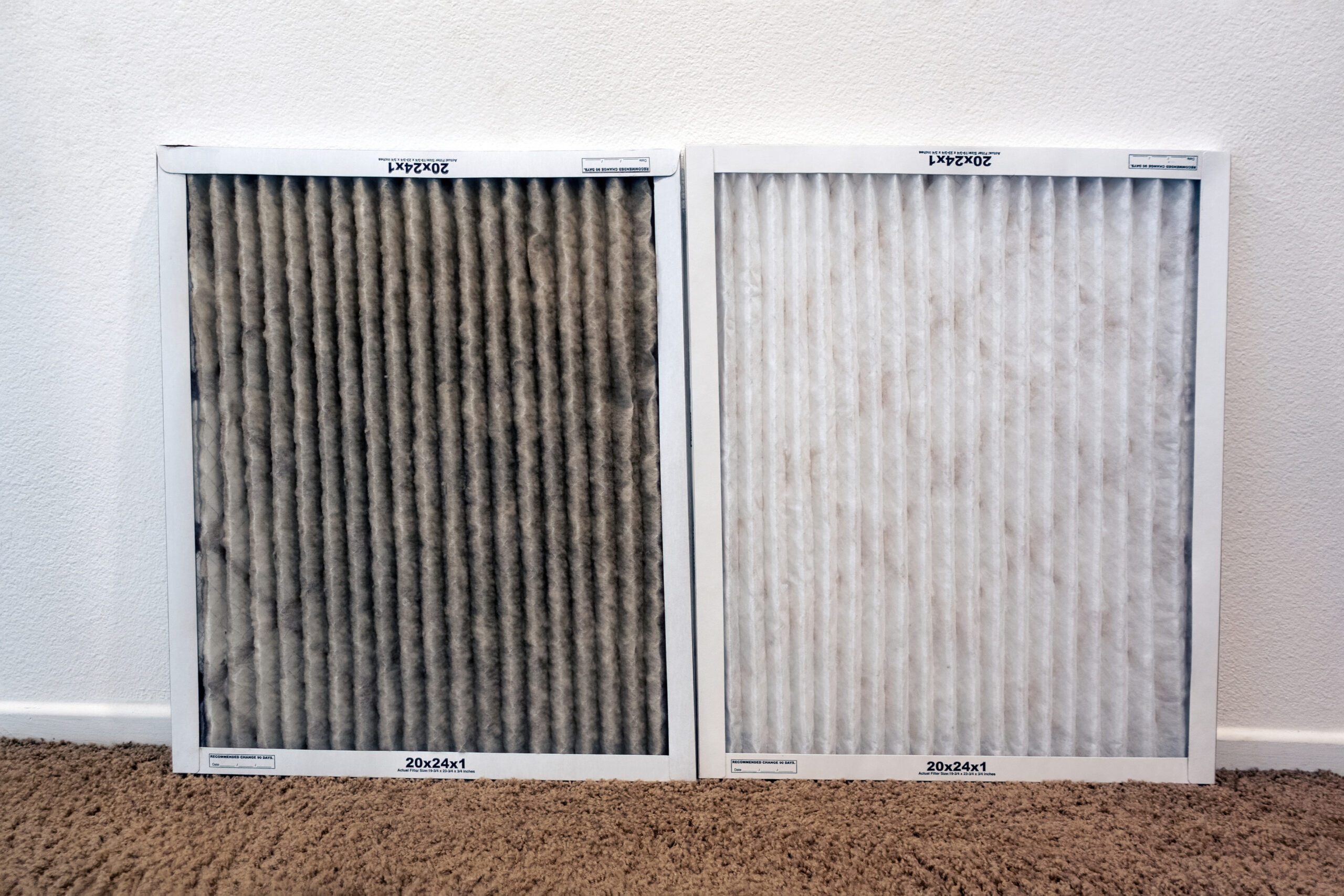|
Getting your Trinity Audio player ready...
|
Last Revised: 1/20/2025
Oil-based heating and heat pumps are two of your home heating system options. Both of which offer differences in technology, costs, and more.
Replacing your home’s heating system can be overwhelming, especially if it’s your first time making an HVAC purchase. If you’re being thorough in your replacement search, it can leave you asking questions like:
Should I just install a new version of my old system?
Are there better options out there?
How do I know what’s best for my home?
We know that the process of choosing a new heating system for your home can feel like every answer leads to three more questions. That’s why we’re here to help you get started by looking at two of your home heating options in a side-by-side comparison.
Oil heating is a reliable, tried and true method of keeping your home warm, while heat pumps are relatively new on the home heating scene. The HVAC installation team at Mattioni are industry experts with deep knowledge of both systems. In this article, we’ll share with you the advantages and disadvantages of oil heating and heat pumps as sources of heat for your home.
Before we dive into that, let’s look at how each system works to get a better understanding of the fundamental differences between the two.
Heat Pumps vs. Oil Heating Systems: Design Differences
The technology behind heat pumps and oil-based heating systems couldn’t be any more different.
Heat pumps utilize equipment that more closely resembles an air conditioner than a furnace or boiler. As its name suggests, heat pumps don’t produce heat, but rather transfer it from one location to another.
When you turn on a heat pump, it absorbs heat from the ambient outdoor air using a compressor unit and transfers it to indoor air handlers that disperse the heat throughout your home. Heat pumps accomplish this by utilizing the chemical properties of cold-weather refrigerants that allow heat to be drawn from ambient air even on the coldest winter days. Heat pumps are also able to cool your home in the summer by reversing the flow of heat transfer.
Oil systems, on the other hand, use oil as a combustion-based fuel to produce heat in either a boiler or furnace. The heat is then transferred to water or air that’s distributed throughout your home via ductwork and vents or baseboards and radiators. This type of system has been around for nearly 200 years and requires a large tank to be installed on your property that holds hundreds of gallons of oil.

Heat Pump: Pros
1. Energy Efficiency Saves on Utility Bills
Heat pumps have grown in popularity largely because of their incredible energy efficiency. Because they only transfer heat and don’t have the burden of creating it, they can operate at efficiency levels 300% or higher.
To put this in monetary terms, homes heated by heat pumps can expect to save an average of $500 per year compared to those heated by combustion-based heating, according to Energy.gov. This adds up to big-time long-term savings over oil-based systems.
It’s worth noting that the dependency on outdoor temperatures for heat absorption means that a heat pump’s efficiency rate decreases as the days get colder during the winter.
2. Environmentally Friendly
In comparison to other heating options, heat pumps emit far fewer greenhouse gases and therefore have a much smaller carbon footprint.
Since they utilize ambient outdoor air and the chemical properties of refrigerant for heat, the only impact on the environment they pose is the electricity drawn to the system, which today is commonly generated from renewable or low-carbon sources.
3. Increased Humidity
Unlike the summer months, an increase in humidity levels during the winter improves the comfort of your home.
Heat pumps are known for circulating naturally humid air, which is a stark contrast to the dry heat that oil furnaces produce. This bump in humidity will help improve your home’s comfort and prevent things like dry skin during the coldest days.
4. Dual Functionality
Heat pumps are also capable of cooling your home during the summer, thanks to a clever reversing valve that changes the direction of heat transfer.
It’s worth noting that when in cooling mode, heat pumps have roughly the same efficiency as an air conditioner. Nevertheless, their versatility makes them capable of replacing both your heating and cooling systems.
5. Independence from Fuel Delivery
Since heat pumps draw heat from ambient outdoor air, there is no need to stay stocked with fuels that need to be delivered to your home, such as oil.
They can also free you up from dependence on public or private gas lines, as in the case of propane or natural gas. Oftentimes, reliance on these types of gas lines means having only one option when it comes to your fuel supplier and fuel price.
Besides saving you money, this independence means you don’t need to stay stocked with fuel to have heat in your home.
Heat Pump: Cons
1. Lower Quality of Heat Production
While new technologies are continually improving the heat output quality of heat pumps, the reality is that they produce fewer BTUs and won’t be able to get your home as warm as an oil-based heater.
Many homeowners prioritize the quality of their heat and don’t want to adjust to a less warm home. This is sometimes enough to overlook the advantages of heat pumps and explore other options.
2. Higher Upfront Cost than Traditional Heating
The cost of installing a heat pump depends on the size of your home and how complex the system will be. Regardless, heat pumps are usually more expensive to install in your home than an oil furnace or boiler.
Installations usually range anywhere from $6,000 to $16,000, although sometimes they reach as high as $26,000, depending on a variety of factors. Chief among them is the volume of space that needs to be treated, which directly corresponds to how many heat pump systems are needed. Unlike traditional heating, your home’s square footage may dictate that multiple indoor and outdoor units are needed, which causes such sharp increases in pricing.
While this cost is mitigated by reduced ongoing utility bills, heat pump systems are still usually more expensive at the time of installation.
3. Performance & Efficiency Dependent Upon Outdoor Temperature
When outdoor temperatures drop to about 20°F heat pumps encounter a noticeable loss of efficiency. This means that the industry-leading efficiency levels heat pumps experience during the late fall and early spring aren’t sustained throughout the entire season.
A heat pump will still usually save homeowners money on utility bills regardless of the outdoor temperature, but not as much in the middle of winter.
To combat this issue, we also offer supplemental backup heating to keep your home warm during the coldest parts of the year. This heating can be in the form of electric heat strips, or your heat pump can be installed alongside a natural gas, propane, or oil furnace. These back-up heat sources help ensure that you don’t lose comfort in your home.
Oil Heating: Pros
1. Higher Quality Heat
Oil will produce more BTUs than a heat pump, which results in a more thoroughly heated home. This type of system doesn’t rely on outside temperatures, so it will be able to get your home warmed up as much as you want during the coldest winter days.
Oil-based heating results in a home that doesn’t vary in temperature from room to room, which is sometimes the case with heat pumps.
2. Cheaper Upfront Costs
Besides the occasional exception, installing an oil-burning furnace will be easier on your wallet than installing a heat pump system. Oil furnace installations are usually simpler, so costs tend to stay between $7,000 and $14,000.
While the price of filling a 300-gallon oil tank is greater than the monthly utility bills that are associated with a heat pump, the initial cost to install an oil furnace is typically more affordable.

Oil Heating: Cons
1. More Expensive and Fluctuating Utility Bills
Not only is the price of oil more expensive than utility bills tied to heat pumps, but it’s also notoriously volatile as it’s subject to constantly changing global markets.
This means that in addition to paying more, budget planning for an oil bill is very difficult to do. This unpredictability can potentially cause some raised eyebrows when it comes time to pay to have your tank filled.
2. Demands More Maintenance
Oil furnaces also require a much more stringent maintenance schedule as it’s a rather dirty fuel that can compromise the rest of the system if not inspected regularly. Cleanings will be needed at a minimum every year to keep the system running at optimal performance and efficiency. Failing to do so can lead to exacerbated problems in the future.
3. Larger Carbon Footprint
The issue of climate change is an important factor for many individuals who want to reduce their carbon footprint. When it comes to oil heaters, they strictly rely on fossil fuels that contribute to carbon emissions.
Oil heating uses a non-renewable resource that negatively impacts the environment, which is potentially a deal-breaker for some homeowners.

4. Spatial Installation of Storage Tank
Oil tanks need to be large enough to hold around 300 gallons of fuel, and must find a permanent place to stay on your property. This sometimes makes for a challenging installation that can result in the tank landing in a place that makes it an eyesore.
Many times they can be installed underground or in your basement, however if this isn’t possible then you may be stuck with a tank in an undesirable location.
Heat Pumps & Oil Heating: Final Evaluations
Heat pumps and oil-based heating systems provide two very different means to warm your home during the winter. Here’s an overview of the advantages and disadvantages of each system:
Heat pumps are an environmentally friendly option that can also cool your home while saving you money on monthly utility bills. They’re also more expensive to install, experience efficiency fluctuations as outdoor temperatures change, and produce a lower quality of heat than oil-based systems.
Furnaces and boilers that use oil in the combustion process are generally cheaper to install, provide a higher quality of heat, and allow you to escape the gas grid. These systems also have higher utility bills, a larger carbon footprint and require a large tank to be installed somewhere on your property.

What Are the Next Steps in my Search?
Oil-based combustion and heat pumps are two viable home heating options at your disposal, both with clear benefits and drawbacks. However, there are a couple of other fuel sources that are potentially available to you.
Learning about the pros and cons of propane and natural gas as fuel sources will give you a robust understanding of all heating systems. Ultimately, this decision will come down to what matters the most to you, so identifying your priorities for your next heating system should be part of your process.
When you’re ready to talk with an HVAC professional about narrowing down your home heating system replacement search, the team at Mattioni is here and ready to listen to and guide you.
We’ve helped countless homeowners find their perfect heating system, and we’ll be happy to help you find yours.
To set up an in-person consultation with a Mattioni HVAC professional, call today at (610) 400-8510 or schedule an appointment online.




